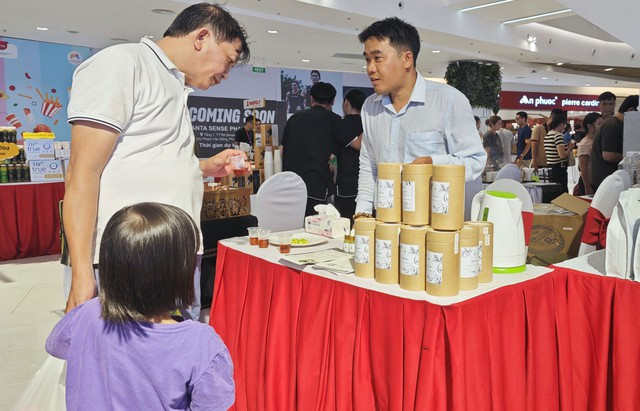Green startups are gaining momentum in Việt Nam as young entrepreneurs embrace sustainable business models that combine local resources, environmental values and market-driven strategies.

HCM CITY — Green startups are gaining momentum in Việt Nam as young entrepreneurs embrace sustainable business models that combine local resources, environmental values, and market-driven strategies.
The Government has implemented strategies and programmes to encourage startup models that incorporate environmental, local and community-oriented values.
As such, green startups are emerging as a practical and ethical trend, enabling young founders to grow their businesses and reach both domestic and international markets.
Phạm Đình Ngãi, a young Trà Vinh Province native, has garnered plenty of attention with his Sokfarm brand, which produces coconut blossom nectar made from the sweet sap of coconut flowers, a hitherto largely untapped product.
After nearly a decade of research and development, his project has achieved international certifications such as HACCP and ISO and the products are exported to markets in Europe and Asia.
Ngãi said his motivation lies in his willingness to preserve traditional livelihoods in his hometown while integrating internationally.
Đỗ Đăng Khoa, a young startup entrepreneur from Đồng Tháp Province, has made progress with a range of environment-friendly products made from loofah fibre.
His business has expanded into international retail chains such as AEON in Japan and LOTTE Mart in South Korea.
Lê Huy Quang, CEO of Lê’s Farm Hi-tech Agriculture Co Ltd (Lâm Đồng Province), launched his avocado-based business four years ago.
He told Người Lao Động (The Labourer) newspaper that earlier agricultural startups often failed due to a lack of long-term vision, but recent founders are generally better prepared, leading to improved success rates.
A growing number of startups are fostering a more supportive entrepreneurial community, with founders sharing market information and exploring opportunities for collaboration, he added.
Phạm Ngọc Anh Tùng, founder of agri-tech startup UFO Technology And Trading Co Ltd., emphasised the importance of aligning with market demand.
He told Người Lao Động: "We learnt a major lesson from our instant noodle product.
“Due to a lack of resources, we could not conduct proper market research or collect sufficient data, which led to inaccurate market assessments. The same happened with our organic products although the quality was good, the price was high, and the market segment was very narrow, they were extremely difficult to sell.”
Some young entrepreneurs have begun to use local raw materials for deep processing and product diversification, he said.
However, without a clearly defined market, new products are unlikely to succeed, and it is essential to conduct thorough research to determine whether a product already has a market or could be used as an ingredient in popular dishes, he added.
Vũ Kim Hạnh, chairwoman of the Business Association of High Quality Vietnamese Products and a long-time advocate of green entrepreneurship, said that green startups not only offer ways for young people to get rich but also promote agriculture and safeguard the environment and cultural values.
When these values are elevated to commercial products, the local agricultural economies will develop significantly, she said.
Agriculture. along with information technology, is among the most attractive sectors for startups in Việt Nam. — VNS





